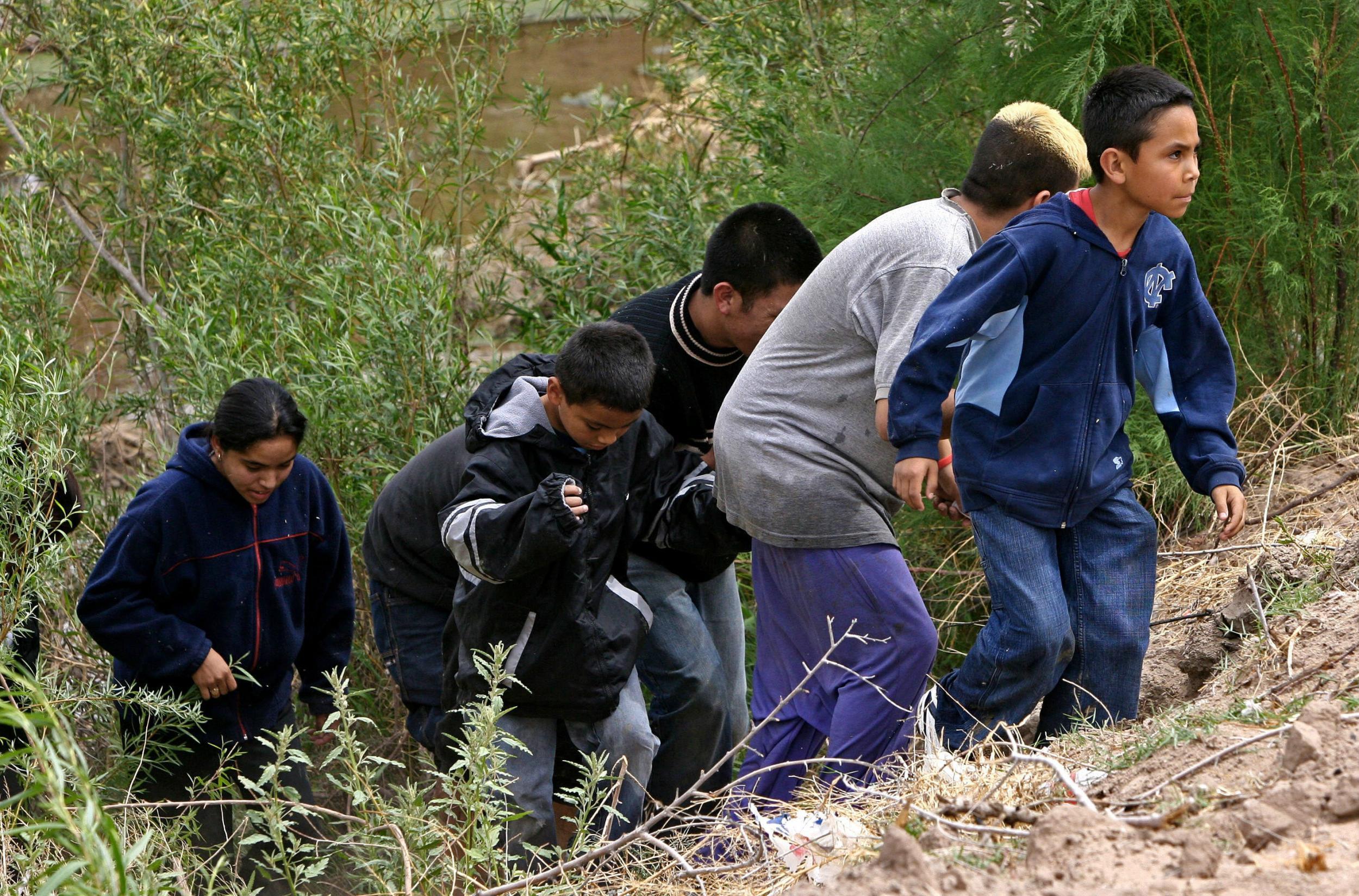Donald Trump cancels immigration scheme set up to help some of world’s most vulnerable children
Activists say youngsters will be at greater risk of trafficking

Your support helps us to tell the story
From reproductive rights to climate change to Big Tech, The Independent is on the ground when the story is developing. Whether it's investigating the financials of Elon Musk's pro-Trump PAC or producing our latest documentary, 'The A Word', which shines a light on the American women fighting for reproductive rights, we know how important it is to parse out the facts from the messaging.
At such a critical moment in US history, we need reporters on the ground. Your donation allows us to keep sending journalists to speak to both sides of the story.
The Independent is trusted by Americans across the entire political spectrum. And unlike many other quality news outlets, we choose not to lock Americans out of our reporting and analysis with paywalls. We believe quality journalism should be available to everyone, paid for by those who can afford it.
Your support makes all the difference.The Trump administration has cancelled an immigration assistance scheme established to help some of the world’s most imperiled children - a move activists say will lead to “suffering and death” for vulnerable youngsters.
The programme was established in 2014 and provided a safe-entry for children from Guatemala, Honduras and El Salvador whose parents were already living legally in the US. It took note of the unique threat to the children in these countries from organised gangs, and the fact that tens of thousands of children were fleeing their homes and trying to make it northwards by themselves.
Now, the Department of Homeland Security (DHS) has announced it is terminating the scheme, following Donald Trump’s executive order cracking down on immigration signed in January.
“As of August 16, 2017, the United States Citizenship and Immigration Services (USCIS) will no longer consider or authorise parole under the CAM Parole Programme,” the Department of Homeland Security said in a notice.
“In addition, USCIS will notify individuals who have been conditionally approved for parole under this programme and who have not yet travelled that the programme has been terminated and their conditional approval for parole has been rescinded.”
The scheme was set up by the administration of Barack Obama - a man whom some activists dubbed the “deporter in chief” - at a time when tens of thousands of unaccompanied youngsters were making their way illegally into the US with the help of people smugglers or “coyotes”. It was only available for children whose parents were already living in the US legally and offered an alternative for youngsters who, for whatever reason, did not meet the requirements for asylum.
The Lutheran Immigration Service (LIRS), one of the groups that worked with the government to help reunite families, said that in 2014, a total of 57,498 children from the three Central American three countries crossed the southern US border. They said the scheme has helped a modest number of children - less than 3,000 to date.
Yet even though the number were relatively small, activists said the scheme provided critical protection to those youngsters. LIRS said removing the programme will subject children to further harm and increasing risks of trafficking and child exploitation.
“Parole is a lifesaving aspect of the United States’ longstanding commitment to offer safety and protection,” said LIRS Vice President Kay Bellor.
“LIRS calls on the Administration to heed our moral obligation to protect the most vulnerable among us - children.”
Oscar Chacón, Executive Director of Alianza Américas, said the decision was “unfortunate and misguided”.
“The decision by the Trump Administration to end th humanitarian protection programme for Central American minors, will result in suffering and death for the very children and young people most at risk from gangs and other violent groups in Guatemala, Honduras, and El Salvador,” he said.
The three Central American nations have some of the highest rates for violent deaths outside of war zones as gangs - many of which have their roots in the prison system of the US - fight over drugs and turf.
In 2015, El Salvador took over from Honduras as the deadliest country other than a declared war zone. That year, it recorded 104 murders per 100,000 inhabitants, a rise of 67 per cent on the figures for 2014.
Only nations such as Syria and Iraq are deadlier. By contrast, the UK’s murder rate is 1 per 100,000 inhabitants, while the US has a figure of 4.
The DHS said that although it was removing the so-called parole scheme, children could still apply for asylum.
It said: "This change in policy does not preclude such individuals from applying for resettlement through other avenues."
It added: “DHS continues to work with other Executive Branch agencies and the governments of the Northern Triangle countries and Mexico to discourage irregular migration and secure the US southern border.”
Join our commenting forum
Join thought-provoking conversations, follow other Independent readers and see their replies
Comments